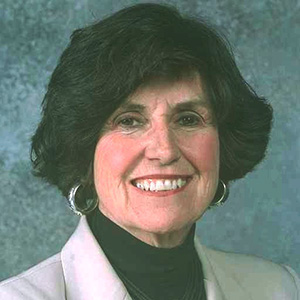
Loretta Barret
She has been a part of the SDSU Writers’ Conference since 1985 and is one of the most sought-after agents at the conference’s one on- one sessions. Loretta Barrett has had a long and very successful career in publishing and she talks to Upfrontabout the SDSU Writers’ Conference and answers the questions that every author wants to know.
How does an author get your attention?
I probably get 300 queries a week. An author’s letter has to be good since we read an enormous amount of material that’s unsolicited. So I often say at the Writers’ Conference, if one agent says ‘no,’ go to the next one. Maybe that agent is too busy that month. Maybe that agent can’t handle anymore clients. Just keep knocking on the door. I’ve taken a lot of unpublished people on.
What should an author do before attending the SDSU Writers’ Conference?
Publishing is a business. Writing is an art. And, writers have a vocation that is very different than a profession. Only write because you have to write. You would be miserable if you didn’t. Writers should learn about the business. Spend two or three hours every week on the business side – meaning find out about the business and what’s going on.
So, authors and writers need to be prepared before they attend?
When they go to the conference they’ll hear a lot of hints and they should go home and follow up on them. It’s a really good conference in terms of having access to first-rate editors and agents. There’s a lot to learn, but after you’re there, you go home and follow up on it. It’s hard work.
What else can you share with authors before the conference?
Here’s what I want you to tell people: What’s the secret about getting a first read. It’s really important that their cover letter be good. It’s really important that they include their bio. It’s really important if the book they are selling is fiction and they’re writing about blowing up a dam, if they’re an engineer. Tell me you’re an engineer. Or, if it’s a book on the southwest tell me that you lived there. Writers don’t give enough information behind the book. If it’s nonfiction, have a website. When you get to a point where you’re paying money for a conference, you should go in and decide what you are missing. Ask “What am I missing to get published?” Also, there really is no simple answer to getting published; however, someone can tell you “no” but you have to keep on trying and making query letters. Keep believing in yourself – it takes a lot of hard work and if the third draft doesn’t work, do the fourth draft.